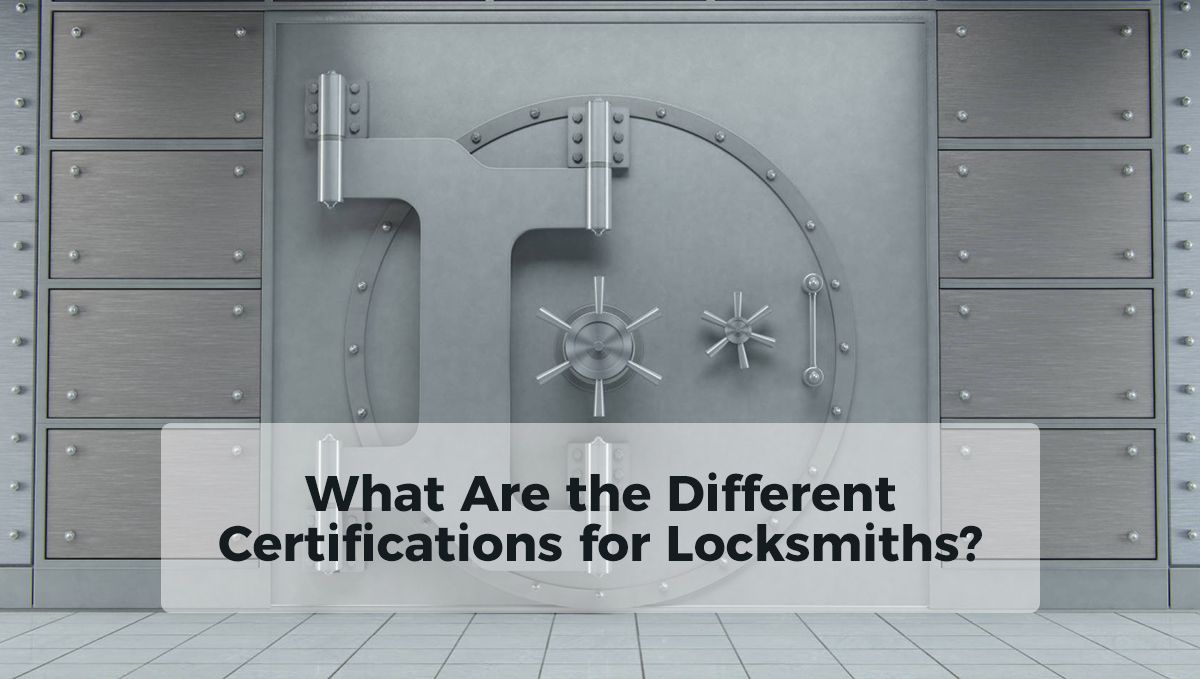A certification is, if not always, then often a proof or excellence. It is a way we measure and prove experience and knowledge in a particular field. This holds true for locksmiths. A few years ago, locksmith scams were so prevalent that Google refused to serve locksmiths on local search. The scams are still there, but people are being a bit more savvy about who they use. Let’s get a look at some of these certifications and the associations behind them.

Certifications and Certifying Authorities
Let's start with the organizations that certify locksmiths. There are two main authorities that issue certifications for locksmiths – the ALOA and SAVTA. ALOA stands for Associated Locksmiths of America. SAVTA stands for Safe and Vault Technicians Association. One cannot install and maintain safes or vaults until one has the appropriate certifications from SAVTA. It doesn't matter if they possess all the certifications from ALOA. In this way, both associations ensure the expertise of practitioners in their respective fields. Certifications from both associations are standalone. A locksmith doesn't have to get certs from both organizations to run a business. They only need the ones relevant for their specialization.
ALOA Offers Three Certifications
Starting with the ALOA, you’ve got three degrees, the CPL, CRL and CML.
● A Certified Registered Locksmith (CRL) is the introductory-level certification. A CRL has a good working knowledge of general locksmithing.
● A Certified Professional Locksmith(CPL) is the mid-level cert. A CPL has advanced knowledge of general locksmithing and of many specialized areas.
● The last certification is a Certified Master Locksmith (CML), after which the locksmith is considered a master smith. A CML has advanced knowledge of most areas of locksmithing and electronic security.
Any one of these three certifications allows a locksmith to open shop. There are many other training programs for techs and apprentices, not to mention specialties.
SAVTA Offers Two Certifications and Other Training Programs
When it comes to SAVTA, there are two main certifications: the Certified Professional SafeTech (CPS) and the Certified Master SafeTech (CMST). Additionally, SAVTA offers a couple other programs that aren't mandatory. These offer additional training and specialized expertise, including automotive and electronic locksmithing. There's a lot a locksmith can dive into in regards to specialties and specifics.
Both organizations offer continued education courses. In this way, locksmiths can keep up on the trade and maintain their certifications.
Conclusion
Now you know a little bit about what the certifications are for locksmiths and can now spot impostors versus honest locksmiths.
A-1 Locksmith of the Palm Beaches, Inc. is a lock manufacturer of great prestige and with a long tradition of excellence. They're located at 4545 Forest Hill Boulevard #6, West Palm Beach, Florida, and they boast an impressive stock of state-of-the-art locks.
Sources:
“Training for a Locksmithing Career” . Local KeyLockSmith.com . Accessed 7.19.2017. http://www.localkeylocksmith.com/locksmithing/locksmith-certifications.html
ALOA.org . Accessed 7.19.2017. http://www.aloa.org/certification-and-testing/aloa-certification-testing.html
Congratulations @jackdorsey645! You received a personal award!
Click here to view your Board of Honor
Downvoting a post can decrease pending rewards and make it less visible. Common reasons:
Submit